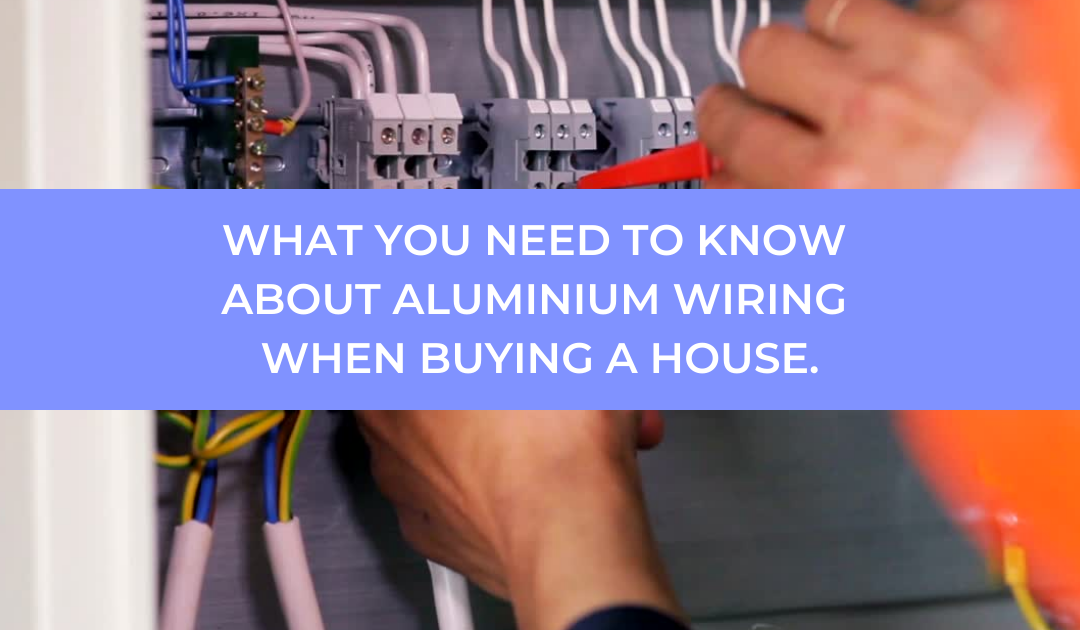Aluminium wiring is a big red flag for many home buyers. It has a stigmatised history that is misunderstood and likely isn’t as scary as you think.
There are a lot of myths and misconceptions about aluminium wiring that plague the general opinion of it in homes. These misconceptions scare buyers away thinking that it is less safe or less effective than copper wiring. While there are some extra things to be aware of if you’re looking at a home with aluminium wiring, it’s likely not as big of a deal as home renovation shows make it out to be.
What is aluminum wiring?
Aluminum wiring is electrical wiring made from aluminum. Aluminum wiring was commonly used in the 1970s-80s in Ontario as it was cheaper than copper wiring. Though, homes built outside of that time range may contain aluminum wiring, it is less likely.
Is Aluminum wiring as good as copper wiring?
Copper is a better conductor than aluminum wiring. For aluminum wiring to conduct as much electricity as copper wiring, it needs to be a slightly larger wire. Wire sizes are typically measured in gauges. Typically, aluminum wiring is 12 gauge wiring (often labelled as 12/2 on the wires) whereas copper wires are typically 14 gauge. Same as with piercings, the smaller the number the bigger the size. So, 12 gauge is a larger wire than 14 gauge.

What are the biggest problems with aluminum wiring?
The unsafe reputation of aluminum wiring comes from the fact that it is more likely to overheat, therefore can be a greater fire risk. However, that does not mean that all aluminum wiring is a spontaneous combustion waiting to happen. If aluminum wiring is installed correctly and with the proper receptacles, marrets, and fittings, the risk of fire is exceptionally low. Insulation clearance and ensuring wires are not pinched is also important to reducing fire risk of aluminium wiring. A master electrician can inspect your wiring for a fee and provide you with insight as to whether the wiring you’re looking at is safe, to code, and provide an estimate for any work that would need to be done to render it as such. When electrical work of any kind is completed, consider getting an ESA certificate to provide to future buyers and help mitigate the stigma of the wiring in your home long before you consider resale.
Other considerations when it comes to aluminum wiring?
Rusting: Metal rusts. It’s as simple as that. However, depending on the material, the oxidization reacts differently. The rust on copper wiring is still conducive and unlikely to interrupt the flow of electricity. With aluminum, the oxidization is not as conducive and may interrupt the flow of electricity.
Expansion: When electricity flows through wire, it creates heat. Aluminum wiring expands more than copper wiring and therefore has a higher likelihood of “creeping” or falling out of place. If it is installed correctly this shouldn’t be much of an issue but it is important to have it looked at by an electrician.
Softness: Metal softness is called malleability. Aluminum is softer, therefore more malleable, than copper wiring. This means it is easier to cut, bend, and pinch than it’s copper wiring counterparts. Damaged aluminum wiring can create hotspots which can be flammable. If you’re doing renovations, it is important to be aware of this and ensure your contractor and electrician are familiar with dealing with aluminum wiring to ensure it is not accidentally damaged.
Does aluminum wiring impact the value of a home?
Aluminum wiring can impact the value of a home due to the stigmas surrounding it. Many buyers are not interested in properties that have aluminum wiring, therefore the pool of viable and interested buyers is smaller than the pool of buyers considering homes with copper wiring. Fewer buyers means less demand and therefore possibly a lower price. Talk to your realtor about the impact of aluminum wiring on market value and resale value if you are considering purchasing or own a home with aluminum wiring.
So, is aluminum wiring a problem?
In the grand scheme of things, no. Aluminum wiring is, for the most part, safe. There are considerations to keep in mind with aluminum wiring that are different from what you would experience or consider with copper. It is unpopular and often stigmatized, however if it is installed correctly, using the proper fittings, and not damaged, the risk of an electrical fire due to aluminum wiring is very low.
Talk to your home inspector and a professional master electrician about any questions and concerns you have if you are considering purchasing a home with aluminum wiring.
